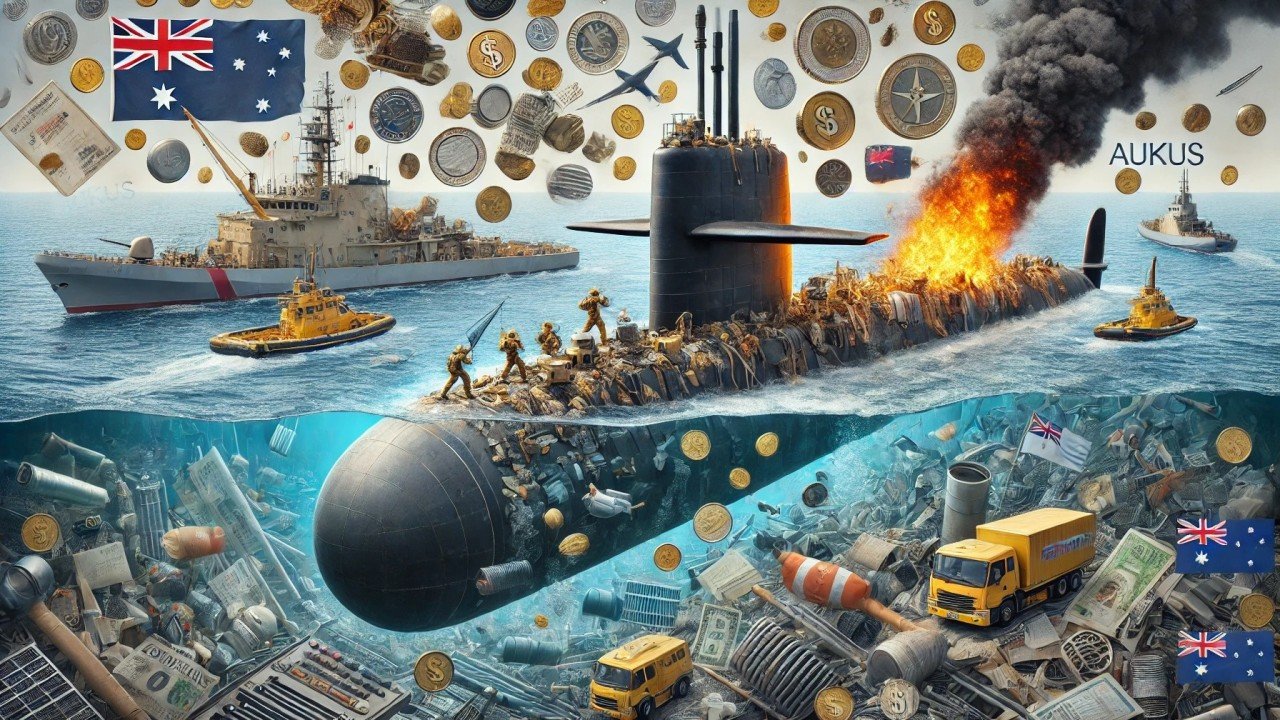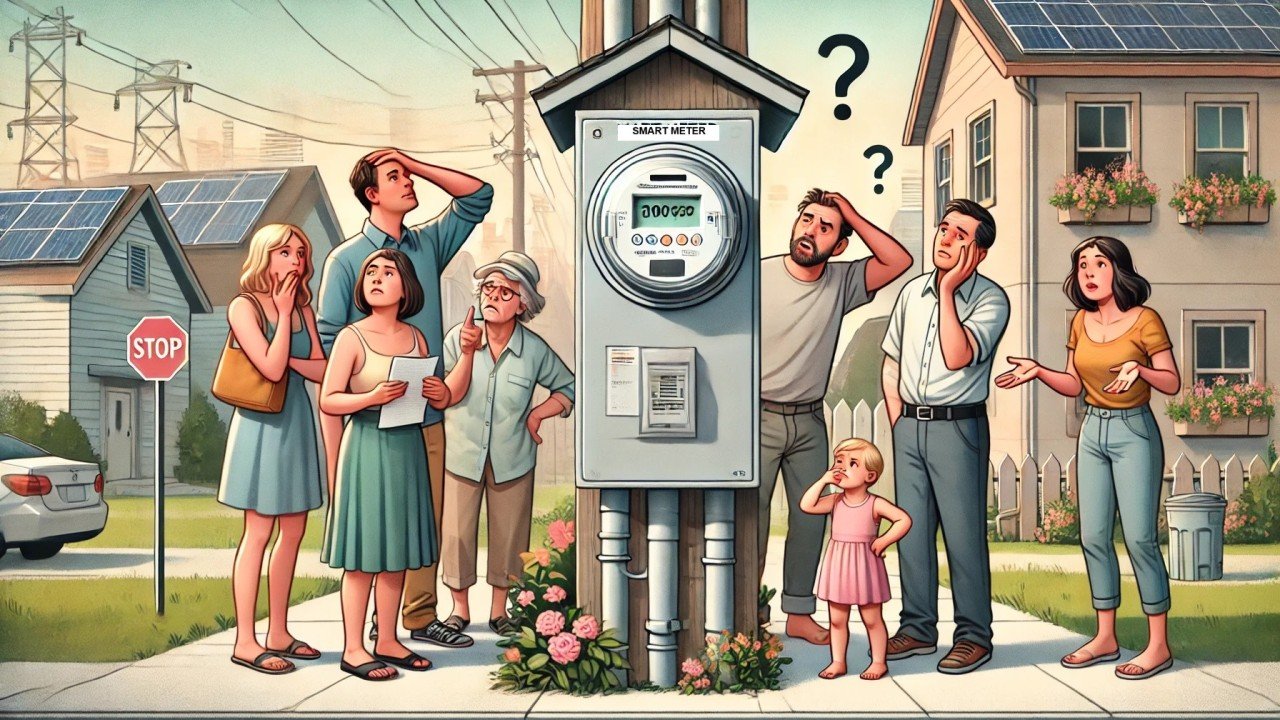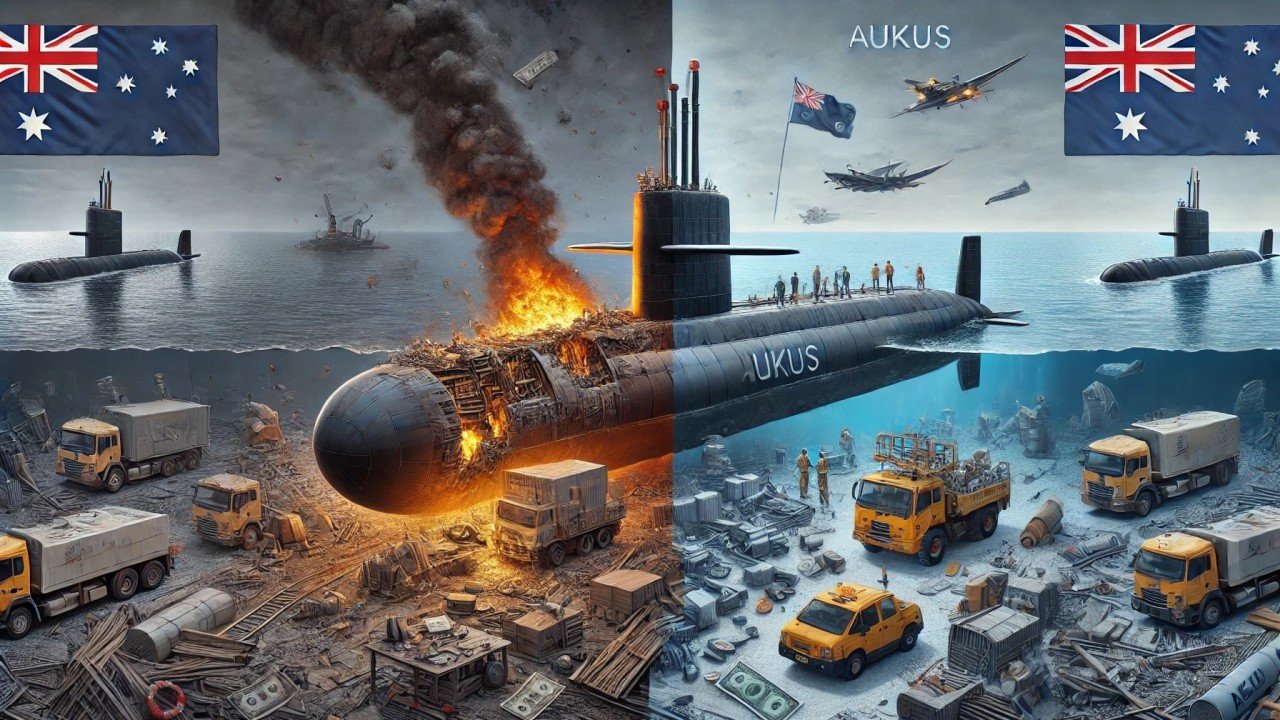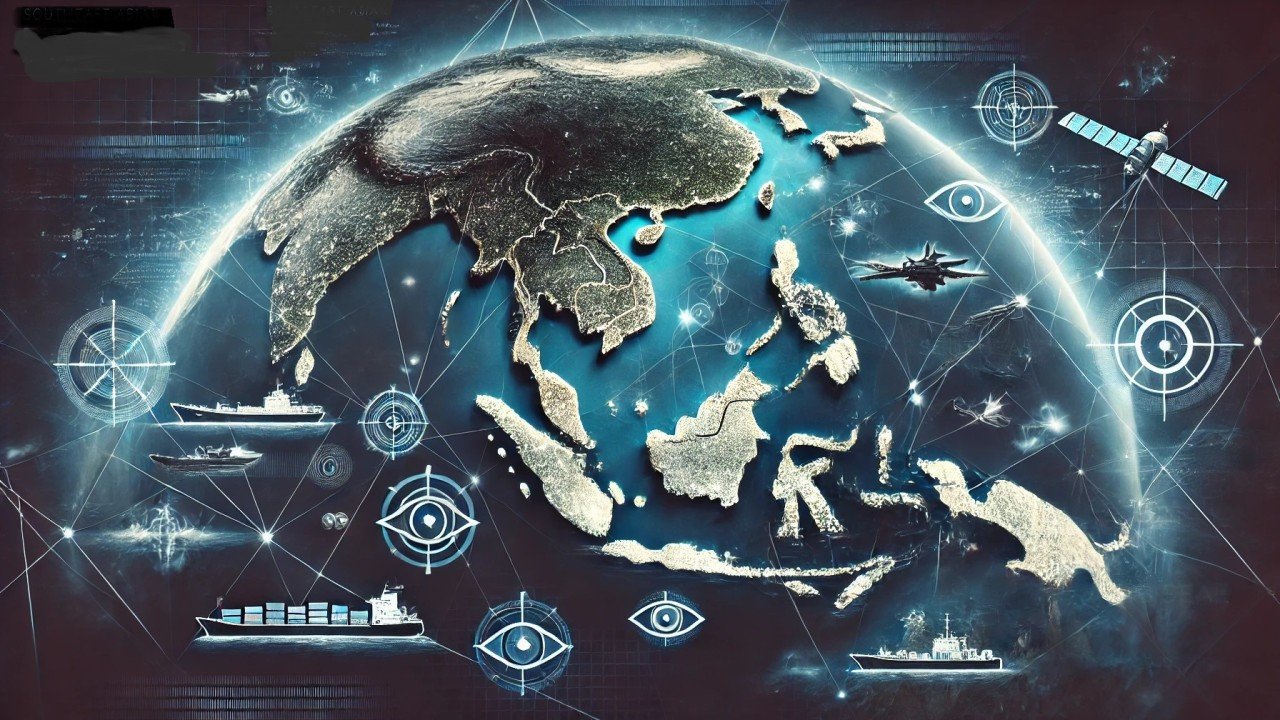
The Emergence of Modern Israel: A Historical Overview to a solution of the Middle East Crisis
Explore the deep-rooted history of Israel's formation with our comprehensive overview, "The Emergence of Modern Israel."

The cause of death of 1,149 tonnes of Tasmanian farmed salmon not reported. A critical examination:
Unveiling the Underwater Crisis at Macquarie Harbour
Discover how Macquarie Harbour, a vital aquatic ecosystem, mirrors an industrial wasteland underwater. Our latest findings reveal a shocking die-off of 1,149 tonnes of Tasmanian farmed salmon, a symptom of a much larger crisis.
What's Happening? Like a battery chicken shed but underwater, salmon pens at Macquarie Harbour are accumulating approximately 5,000 tonnes of waste annually with little tidal flow to cleanse the seabed. The result? Oxygen-depleted dead zones where marine life can barely survive.
Root Cause Analysis Current mitigation efforts, including air diffusers and nano-bubble technology, barely scratch the surface of the underlying issue—the unsustainable waste accumulation turning the harbour into an aquatic sewer.

Is Government Funding Skewing Supermarket Price Comparisons?
Is your grocery bill reflective of true market prices, or is it being skewed by government-funded surveys? Discover how Aldi’s domination of private labels may be distorting supermarket price comparisons, giving it an unfair advantage in poorly constructed surveys over Coles, Woolworths, and IGA. Read on to uncover the critical flaws in CHOICE's methodology and the ethical concerns it raises.
Supermarket price comparison surveys are meant to guide consumers, but are they fair? Our analysis exposes a significant bias in CHOICE’s methodology—substituting higher-cost national brands with cheaper home brands, predominantly benefiting Aldi. This practice distorts true pricing, disadvantaging other major chains. It's time for transparency in how supermarket prices are compared!

Australia's Lost Wealth: The Price of Political Mismanagement and the Path to Recovery
Australia is at a critical turning point. For over two decades, we’ve watched as our nation's vast natural resources, once poised to secure our financial future, have been squandered. The root cause? Political mismanagement and a lack of accountability, particularly during the long periods of Liberal National Party (LNP) governance.

Queensland’s $10.7 Billion Coal Royalties: A Triumph of Sovereign Control and Economic Resilience.
Australia’s natural resources are a national treasure. Queensland’s bold move to revise coal royalty rates in 2022 has delivered a windfall of $10.7 billion, funding critical infrastructure, regional healthcare, and decarbonization efforts. This success showcases the sovereign necessity of progressive resource taxation. As we face an uncertain global economy, Queensland's approach is a model for how states can secure long-term benefits from their natural assets while ensuring sustainable growth.

The Unplanned Housing Crisis: Liberal-National Coalition’s (LNC)Poor Governance & Contradictory Commitments
Australia’s housing crisis is set to worsen, thanks to uncoordinated housing commitments by the LNC and Queensland LNP. Their promises—up to 1.5 million new homes—without a realistic plan, will lead to higher costs, labour shortages, and project delays.
The LNC’s policies and restrictions conflict with their housing targets, showing a lack of governance and planning. How will they meet this demand without the workers needed to build the houses?

A Call for Minister Plibersek to Champion Job Growth, Sustainable Salmon Farming, and Environmental Protection in Tasmania
Advocate for Change! Join us in urging Minister Tanya Plibersek to lead Tasmania towards a sustainable future with our proposal for transitioning salmon farming from ocean pens to land-based facilities. This strategic move promises enhanced job creation, environmental preservation, and business innovation.

All or Nothing: Can Arab, Jew, Christian, and Muslim Coalesce Without Looking Back?
In the quest for a lasting solution to the Middle East conflict, are we paralysed by the fear of becoming salt or stone if we gaze too deeply into history? The origins of today's struggles may reach back to ancient times, but it’s the modern twist that keeps us divided. Can Arab, Jew, Christian, and Muslim truly unite if we’re bound by the weight of the past?
This narrative isn’t just about displacement and survival—it's about breaking free from the past to forge a united future. But do we risk losing it all if we can’t let go of historical fear?
Discover how embracing the truth of history might just be the key to building a peaceful future for all. Read on and be part of the conversation for lasting change.

Voltage Drop Dilemma: Are We Sacrificing Our Appliances and Energy Bills for Sustainability?
Looks like breakfast might get even slower! With voltage already dropping from 240V to 230V in 2000, what happens if we go even lower? My trusty toaster is already taking longer, and now even dinner might feel like a marathon instead of a sprint!
While energy savings and reducing emissions sound great, we can’t forget the impact on our everyday appliances—stoves, ovens, and hot water systems. Could lowering voltage lead to higher energy bills as we use these appliances longer just to get the same results? Let’s think about smarter solutions for energy efficiency, like improving design and overvoltage protection.

CHATO International Poised to Lead Collaborative Solutions as Government Takes Bold Action on Unit Pricing
Big news for Australian shoppers
The Australian Government is finally tackling long-standing unit pricing issues in supermarkets, and CHATO International is at the forefront of the solution.
We’ve submitted groundbreaking research to the Senate, Queensland Government, and ACCC inquiries—highlighting the need for fairer, more transparent pricing for all Australians.
At CHATO, we believe that collaboration is key. That's why we’re working hand-in-hand with supermarkets, consumer groups, and the government to create a solution that benefits everyone. Together, we’ll ensure that unit pricing works for all Australians.

On the Brink: Navigating Australia's Fuel Crisis Amid Global Instability
The potential for escalated conflict in the Middle East poses severe risks for Australia, particularly due to our limited fuel reserves, which stand at only 27 days' worth within the country, supplemented by additional supplies in transit and overseas.

Is This the Chilling Outcome of Putin's Calculated Manoeuvres?
By potentially diverting Allied support from Ukraine to the Middle East, Putin might be crafting a dual crisis. This strategic shift could not only trigger a severe oil price and supply shock, compelling Europe into a desperate move to activate the Nord Stream 2 pipeline to survive the impending winter, but it also reallocates critical aid from Ukraine.

Being liberal with estimates creates inflation: The need for serious governance and responsible decision-makers
The management history of the previous Liberal Governments reflects significant misjudgements and fiscal irresponsibility. This report provides a critical analysis of these failures, emphasizing projects that have exceeded budget projections and jeopardized national interests.

Strategic Importance of Southeast Asia to Australia’s Fuel Security
In the context of global events that impact fuel supply and political stability, the strategic importance of Southeast Asian nations to Australia's energy security is paramount. This white paper examines the logistical and economic implications of Australia's reliance on this region, especially through the lenses of maritime routes and geopolitical alliances.

A Critical Analysis of Australia’s Submarine Choice: A Lesson in Mismanagement and Waste
The Former Australian Government’s decision to replace the aging Collins-class submarines with nuclear-powered submarines under the AUKUS agreement has been marred by mismanagement, excessive costs, and a lack of due diligence. This document provides a detailed critique of the decisions that led to an appalling waste of taxpayer money, and contrasts Australia’s approach with the more economical choices made by its Southeast Asian neighbors.

White Paper: Complex Electricity Tariff Imposition on Consumers
The complexities in electricity tariffs in Australia have left many consumers confused and frustrated. This white paper delves into the author's personal experience as a consumer, navigating electricity retailers and price comparison sites, and the difficulties in finding accurate and reliable information on energy tariffs. It also highlights the disconnect between advertised plans on price comparison sites and the actual fulfilment of contracts by electricity retailers. Consumers must be cautious and aware of hidden complexities within electricity contracts and tariffs, as discrepancies can lead to unexpected financial consequences.

White paper: Restrictions on Nuclear Submarines in Defending Australia
Australia’s choice to acquire nuclear submarines under the AUKUS agreement raises significant strategic concerns, particularly when considering the geographical constraints and geopolitical realities of Southeast Asia. The overarching skepticism stems from the limitations of nuclear submarines in defending Australia’s critical trade routes, including oil and fuel supplies, and their operational challenges in Southeast Asian waters.

Consumer Advocacy and Protection: A Case Study of Supplier Practices in Watch Repairs
This article examines a consumer case involving an international watch brand repairer in Australia and highlights issues of consumer advocacy and protection. The case presents a scenario where a supplier, offers a repair quotation, but then makes offers that financially benefit the company, potentially at the expense of the consumer. This analysis explores the company's approach, relevant consumer laws, and the broader implications for consumer rights in Australia.

White Paper: Southeast Asian Eyes (SEAE)
The Southeast Asian Eyes (SEAE) is a concept for an Australian initiated, strategic intelligence-sharing initiative aimed at enhancing security, political stability, and economic integration across Southeast Asia. This paper outlines the benefits, challenges, and strategic imperatives of SEAE, emphasising its potential as an alternative to existing pacts like AUKUS, which are limited by conditional guarantees and may not fully align with Australia’s or Southeast Asian nations' strategic interests.

White Paper: Double Standards in Accountability – The Glass House Dilemma
Australian opposition leader Peter Dutton has recently accused the Labor Party of failing to address alleged criminal links within the Construction, Forestry, Maritime, Mining, and Energy Union (CFMEU). While these claims are significant, they also highlight a troubling issue in Australian politics: selective accountability. Misconduct accusations are often targeted at unions and opponents, while corporate misdeeds tied to political allies are left unchecked. This raises a key question: are those making these accusations themselves free from scrutiny, or are they living in a glass house?
